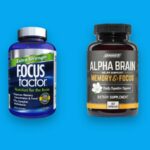
Table of Contents
Introduction
Thiamine, commonly referred to as Vitamin B1, constitutes one of the octet B vitamins, the absence of which could prove to be deleterious to human health. As a water-soluble vitamin, its retention in the body is futile, mandating daily repletion.
Carbohydrate metabolism is profoundly reliant on Vitamin B1, and it exerts a pivotal influence on the functionality of nerves, muscles, and the heart. This article aims to deliberate upon the advantages, origins, and plausible hazards that come hand in hand with Vitamin B1.
Benefits of Vitamin B1
Helps to convert food into energy
Vitamin B1 is necessary for the metabolism of carbohydrates. It helps convert food into energy that the body can use.
Supports nerve function
Vitamin B1 plays a crucial role in nerve function. It helps maintain healthy nerves, and a deficiency in Vitamin B1 can lead to nerve damage and neurological disorders.
Improves heart health
Vitamin B1 helps to regulate heart function by supporting the production of acetylcholine, a neurotransmitter that plays a critical role in heart health.
Boosts immune system
Vitamin B1 also plays a role in maintaining a healthy immune system. It helps the body produce white blood cells that fight infections.
Sources of Vitamin B1
Whole grains
Whole grains are an excellent source of Vitamin B1. Brown rice, oats, and whole wheat bread are some examples of whole grain foods that are high in Vitamin B1.
Meat
Meat, especially pork, is a good source of Vitamin B1. Other meats like beef and chicken also contain moderate amounts of Vitamin B1.
Legumes
Legumes, such as lentils, peas, and beans, are an excellent source of Vitamin B1. They are also a good source of protein, fiber, and other essential nutrients.
Nuts and seeds
Nuts and seeds are a good source of Vitamin B1. Almonds, sunflower seeds, and peanuts are some examples of nuts and seeds that are high in Vitamin B1.
Potential Risks of Vitamin B1
Allergic reactions
Some people may be allergic to Vitamin B1 supplements, which can cause allergic reactions such as hives, difficulty breathing, and swelling.
Interactions with medications
Taking high doses of Vitamin B1 supplements may interact with certain medications, such as diuretics and chemotherapy drugs.
Conclusion
Vitamin B1 is an essential nutrient that plays a critical role in the metabolism of carbohydrates, nerve, muscle, and heart function. It is important to consume sufficient amounts of Vitamin B1 through a balanced diet that includes whole grains, meat, legumes, nuts, and seeds. While Vitamin B1 supplements are generally safe, it is important to consult a healthcare professional before taking any new supplements to avoid potential interactions with medications or allergic reactions.
FAQs
Can Vitamin B1 supplements prevent Alzheimer’s disease?
There is no evidence to suggest that Vitamin B1 supplements can prevent Alzheimer’s disease.
What is the recommended daily intake of Vitamin B1?
The recommended daily intake of Vitamin B1 is 1.1 mg for adult women and 1.2 mg for adult men.
Can Vitamin B1 deficiency cause beriberi?
Yes, severe Vitamin B1 deficiency can lead to a condition called beriberi, which can cause muscle weakness, pain, and nerve damage.








